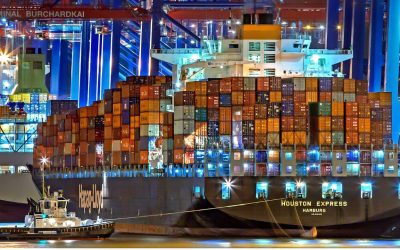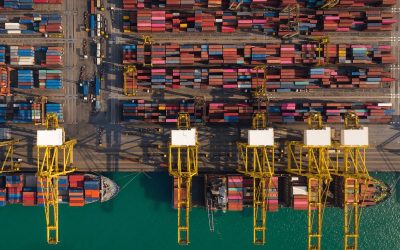Global trade is poised for growth in 2024, and companies are eager to capitalize on emerging commercial opportunities. The market increasingly demands quicker and more efficient offers in this competitive landscape.
Importing can be a complex process. When a company requests an Importer of Record (IOR) quote, several essential factors must be considered. With global trade rising, the demand for import services has skyrocketed. According to the United Nations Trade and Development, international trade is expected to grow in 2024, following a 3% drop in 2023, when the total value of global trade fell to $31 trillion.
The World Trade Organization (WTO) forecasts that the merchandise trade volume will grow by 2.6% in 2024 and 3.3% in 2025. However, the WTO warns that significant risks, including geopolitical tensions and economic uncertainty, could impact these projections.
On the other hand, the World Economic Forum expects Asia to lead the growth in imports and exports in 2024, while recovery in Latin America and other regions might be slower due to economic and political conditions.
In this environment, the market demands quicker quotes. The challenge is that clients often approach Aerodoc with incomplete information about the import services they need, yet they expect precise estimates. Drawing on their extensive experience with technology companies across diverse industries—such as telecommunications, audiovisual integrators, data centers, manufacturers, and tech resellers—Aerodoc is well-equipped to provide accurate cost estimates for these services.
As a leader in technology imports, Aerodoc has built a reliable and accurate information system over the years. This expertise allows them to deliver faster and more precise quotes. Their advanced technological tools ensure timely and efficient responses, providing significant value for clients with urgent projects.

The Five Key Facts
Carolina Muller, VP of Business Development at Aerodoc, explains, “When a client needs to handle exports and imports from anywhere in the world, we must know the exact product type, its value, and the relevant tariff codes.”
The expert outlines five essential questions clients need to answer before Aerodoc can prepare a quote:
- What is the FOB value of the product?
- What type of product is it?
- What is the tariff code?
- How is the product packaged?
- What are the country of origin and the destination country?
“When clients don’t provide all this information, it becomes harder to calculate an accurate estimate,” says Muller. “At Aerodoc, we rely on our product database in such cases. However, for example, there are specific countries where you can’t fly a shipment without certifying the product in a certain way. Without that prior analysis, it’s challenging to give the client a precise quote.”
Aerodoc’s VP adds, “Unlike a standard logistics company that just moves cargo, we handle everything related to customs, clearance, and importation.” She elaborates, “Having all the necessary information upfront ensures that the client’s products are correctly classified at customs, preventing unexpected additional taxes and charges that weren’t accounted for in the original quote.”
For these reasons, having an expert IOR partner in the tech industry is crucial to avoid such unexpected issues. “Our clients at Aerodoc understand how we operate,” says Muller. “So, when they request a quote, they know the type of service they need and the information they need to provide.”
“If clients need a Delivery Duty Paid (DDP) service with IOR—which includes last mile, door-to-door delivery, and importation—they must provide all the necessary documentation about the product,” explains Muller. “We need to know exactly what product we’re dealing with and the types of duties we’ll be paying.”

Experience and Technology
At Aerodoc, 90% of the Duties and Taxes (D&T) quotes match the final operational costs. Muller credits this precision to the team’s vast experience and the cutting-edge technology they use.
“Our system has a comprehensive database that gathers real-time information on the various tax rates required for different products in each country,” says the VP. “Additionally, with many years of experience importing technology, we know the tax percentages needed for the products we handle.”
Aerodoc’s quotes separate service fees from taxes. “We only charge for the services we provide,” Muller explains. “Taxes are a pass-through cost paid to the destination country for importing the product. Aerodoc doesn’t profit from these taxes; we only charge for our services.”
If you want to learn more about our DDP with IOR services, please contact our team.




